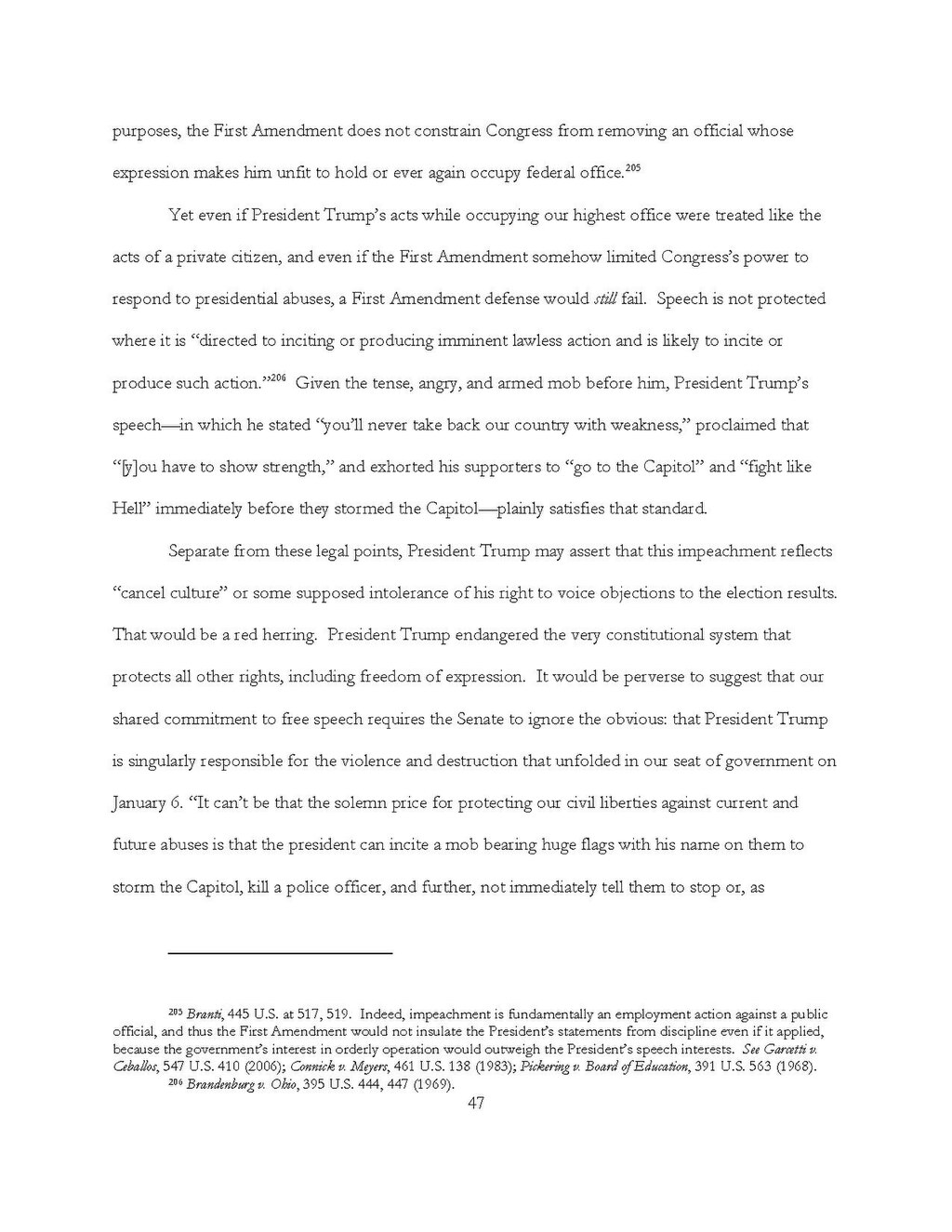purposes, the First Amendment does not constrain Congress from removing an official whose expression makes him unfit to hold or ever again occupy federal office.[1]
Yet even if President Trump’s acts while occupying our highest office were treated like the acts of a private citizen, and even if the First Amendment somehow limited Congress’s power to respond to presidential abuses, a First Amendment defense would still fail. Speech is not protected where it is “directed to inciting or producing imminent lawless action and is likely to incite or produce such action.”[2]206 Given the tense, angry, and armed mob before him, President Trump’s speech—in which he stated “you’ll never take back our country with weakness,” proclaimed that “[y]ou have to show strength,” and exhorted his supporters to “go to the Capitol” and “fight like Hell” immediately before they stormed the Capitol—plainly satisfies that standard.
Separate from these legal points, President Trump may assert that this impeachment reflects “cancel culture” or some supposed intolerance of his right to voice objections to the election results. That would be a red herring. President Trump endangered the very constitutional system that protects all other rights, including freedom of expression. It would be perverse to suggest that our shared commitment to free speech requires the Senate to ignore the obvious: that President Trump is singularly responsible for the violence and destruction that unfolded in our seat of government on January 6. “It can’t be that the solemn price for protecting our civil liberties against current and future abuses is that the president can incite a mob bearing huge flags with his name on them to storm the Capitol, kill a police officer, and further, not immediately tell them to stop or, as
- ↑ Branti, 445 U.S. at 517, 519. Indeed, impeachment is fundamentally an employment action against a public official, and thus the First Amendment would not insulate the President’s statements from discipline even if it applied, because the government’s interest in orderly operation would outweigh the President’s speech interests. See Garcetti v. Ceballos, 547 U.S. 410 (2006); Connick v. Meyers, 461 U.S. 138 (1983); Pickering v. Board of Education, 391 U.S. 563 (1968).
- ↑ Brandenburg v. Ohio, 395 U.S. 444, 447 (1969).
